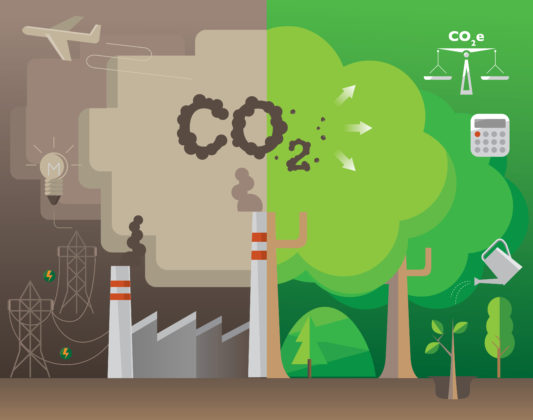We are stepping up to the Net Zero commitment – are you?

HM Revenue and Customs (HMRC) has a brilliant and dynamic workforce of 65,000 spread across the country, and travel is an essential part of our work, as I know is the case for many other government departments.
But what happens when we’re faced with a global pandemic and all travel is halted? Coronavirus (COVID-19) has had a huge impact on the way we live and work and has given us an insight into how we might work towards our commitment to Net Zero.
Net Zero is a policy approach to which a number of government departments and agencies are already committed. In HMRC, we’ve made great progress towards becoming a more sustainable organisation. To continue that trend, we are working to agree on an ambitious sustainability strategy, using a science-based approach, aiming to lower our carbon emissions to zero before the 2050 deadline.
This is just one of three commitments we’re making in HMRC that I’d like to share with you:
1. We are committing to Net Zero by 2040.
2. We are planning our commitment with a Phase 1 ‘internal’ roadmap to understand longer term opportunities, costs, savings and risks related to ‘Net Zero’, followed by a Phase 2 ‘external’ roadmap to influence and support the UK’s transition to a Net Zero economy.
3. We are committing to reduce non-operational business travel emissions by 50%.
We’re launching our plan with phase one, focussing on internal opportunities. This will include forward planning, delivering projects and engaging our brilliant internal channels to reduce travel and office emissions whilst increasing staff wellbeing, and using technology and data to reduce and understand carbon and costs.

We’ll then move onto phase two, considering external opportunities, where we will bridge the gap between our corporate sustainability team and environmental tax policy colleagues to engage with our communities up and down the country on Net Zero. We want to play a larger role across Whitehall in support of the ambition to decarbonise our economy and share our world class environmental tax expertise.
But what would happen if we were to do nothing other than implement our existing plans and watch from the side lines? We will be dragged to Net Zero by 2050 but with more work and cost, I think we can achieve something greater, and much sooner. We should all be setting the standard for a Net Zero future.
COVID-19 has forced us to become a tech-first organisation and to rethink how we engage with each other and serve our customers. Our business mileage has reduced by a huge 93% in April 2020 compared to the same period last year and we’ve seen a 400% increase in audio and video calls during lockdown. All thanks to the fantastic work of our technical teams who worked at breakneck speed to make that happen!
And while it’s not surprising that we’ve seen those results, as we’ve not had the option to travel extensively, the question for us now is this: what can we adopt that’s worked well for us during lockdown, into our working lives in the future, that benefits our environment as well as our productivity?
For many of us, working from home is not a permanent or an ideal solution – we lose that human connection, we’ve had to adapt home spaces for work, and we’ll see higher emissions and costs as a result of heating and running our homes for longer during the day. However, now we know what’s possible, and that will hopefully help us find a new balance in the future.
I’d like to recognise and thank everyone across the GCS community for their continued hard work and for showing such resilience and commitment during these extraordinary times. I’ve seen colleagues, across all departments, work tirelessly to deliver excellent services and policies, and outstanding communications to ensure the right message is being delivered to our customers and support is available to our colleagues.
I’ve been particularly moved by everyone’s involvement in HMRC’s internal pride campaign #hmrctogether which promotes messages of hope and solidarity. Our workforce has quickly adapted and engaged with the good news campaign, and our frontline staff have bravely adjusted to the social distancing measures so they can continue delivering our vital public services. Harnessing this staff engagement for climate positive action will be a key communications objective as we look to Net Zero.
There are a lot of reasons for supporting the Net Zero commitment, and even though achieving zero carbon emissions will be challenging, we should all accept our responsibility to affect change and lead the way.
Read the Net Zero in the UK briefing
- Image credit:
- Francoimage/Shutterstock.com (1)
